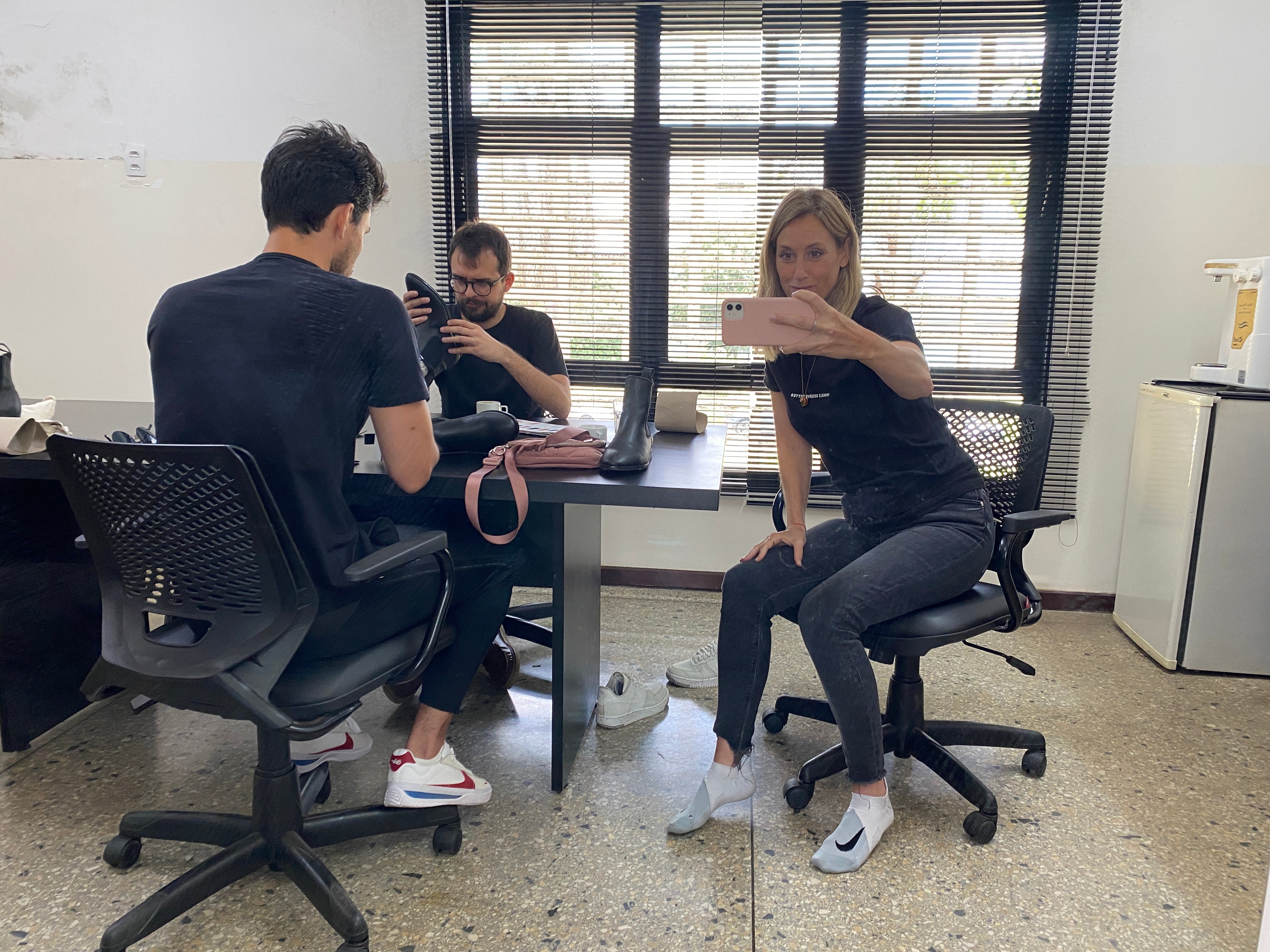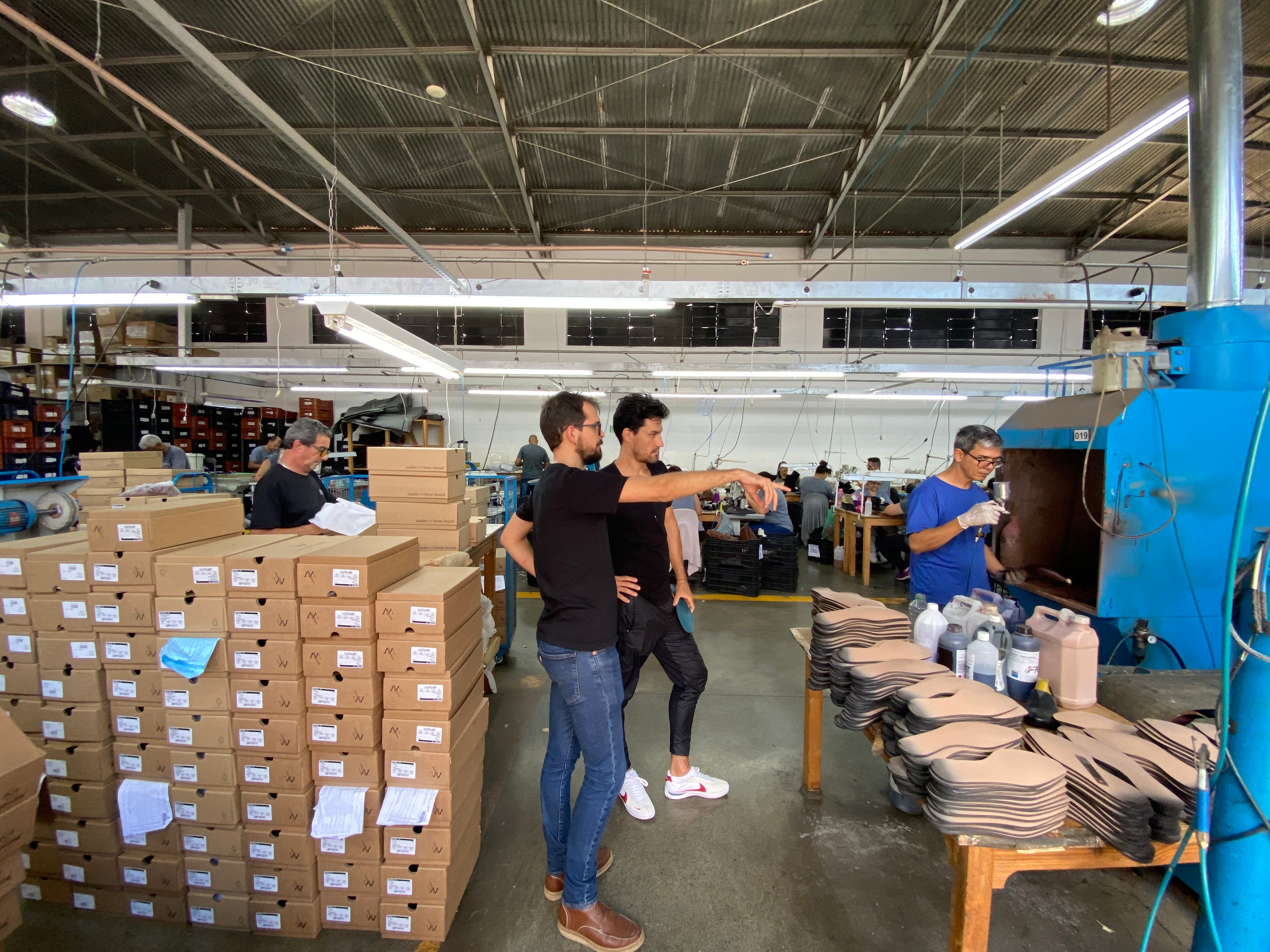The Environmental Hazards of Polyurethane (PU) and PVC Faux Leathers: A Vegan Alternative in Question
As society becomes increasingly conscious about the impact of our choices on the environment, ethical considerations are playing a vital role in purchasing decisions, including the materials we use in our daily lives. When it comes to vegan alternatives for leather, polyurethane (PU) and polyvinyl chloride (PVC) faux leathers have gained popularity. However, these materials come with their own set of environmental hazards that warrant closer examination. We must understand that just because something is vegan, doesn't mean that it is necessarily sustainable. Of course we believe that any move away from animal products is a postive one and we also want to shed light on the harmful effects of PU and PVC faux leathers, emphasizing the need to explore more sustainable and eco-friendly alternatives as we are doing at Voes & Co with our mission to reduce petroleum (plastic) based material in vegan fashion.
PU - A Synthetic Menace (vegan polyurethane material)
Polyurethane, a versatile synthetic material used as a substitute for leather, is derived from petroleum-based products. Although PU can imitate the appearance and texture of genuine leather, its production involves the use of toxic chemicals and solvents such as isocyanates and phthalates. These substances pose a threat to human health and the environment at various stages of production and disposal.
a. Environmental Pollution: The production of PU involves the emission of volatile organic compounds (VOCs) and greenhouse gases, contributing to air pollution and climate change. Additionally, the release of hazardous chemicals into water sources during production contaminates aquatic ecosystems.
b. Non-Biodegradability: PU is not biodegradable and takes a long time to break down. When disposed of, it contributes to the accumulation of plastic waste in landfills, exacerbating the global plastic pollution crisis.
PVC: A Toxic Doppelgänger
Polyvinyl chloride, commonly known as PVC, is another popular choice for faux leather due to its durability and low cost. However, its production and disposal come at a significant environmental cost.
a. Dioxin Release: PVC production involves the release of dioxins, highly toxic chemicals that persist in the environment and accumulate in the food chain. Dioxins have been linked to a range of health problems, including cancer, immune system disorders, and reproductive issues.
b. Hazardous Additives: To enhance the flexibility and texture of PVC, plasticizers such as phthalates are added. These additives have been associated with hormonal disruptions and adverse effects on human health.
c. Persistent Waste: Like PU, PVC is non-biodegradable and accumulates in landfills, contributing to the growing plastic waste crisis. Incineration of PVC releases toxic chemicals into the atmosphere, further polluting the air.
Seeking Sustainable Alternatives:
While PU and PVC faux leathers may appear vegan-friendly on the surface, their environmental impact cannot be ignored. As consumers, we can take steps towards more sustainable choices:
a. Natural Alternatives: Explore vegan leather alternatives made from natural materials like cork, pineapple fibers (Piñatex), mushroom-based leather (MuSkin), or even apple peels (AppleSkin). These options offer a more sustainable and biodegradable solution. We are currently working with Cactus Leather and although it is not perfect as it does contain bio water based PU, we believe it is the best option at the moment for quality and durability required for footwear and are continuing to explore the most planet friendly options.
b. Recycled Materials: Look for brands that incorporate recycled materials in their faux leather production. By supporting such initiatives, we can reduce the demand for virgin plastic production.
c. Second-Hand and Vintage: Consider purchasing second-hand or vintage leather items as a sustainable alternative. Extending the lifespan of existing products reduces the need for new production.
Conclusion:
While PU and PVC faux leathers may offer a vegan alternative to animal-based leather, their detrimental impact on the environment cannot be overlooked. From toxic production processes to long-lasting waste, these materials contribute to pollution, climate change, and plastic waste accumulation. By choosing more sustainable alternatives and supporting brands like ours that prioritize eco-friendly materials, we can contribute to a more environmentally conscious future, one that aligns with our ethical choices and promotes a healthier planet for generations to come.


